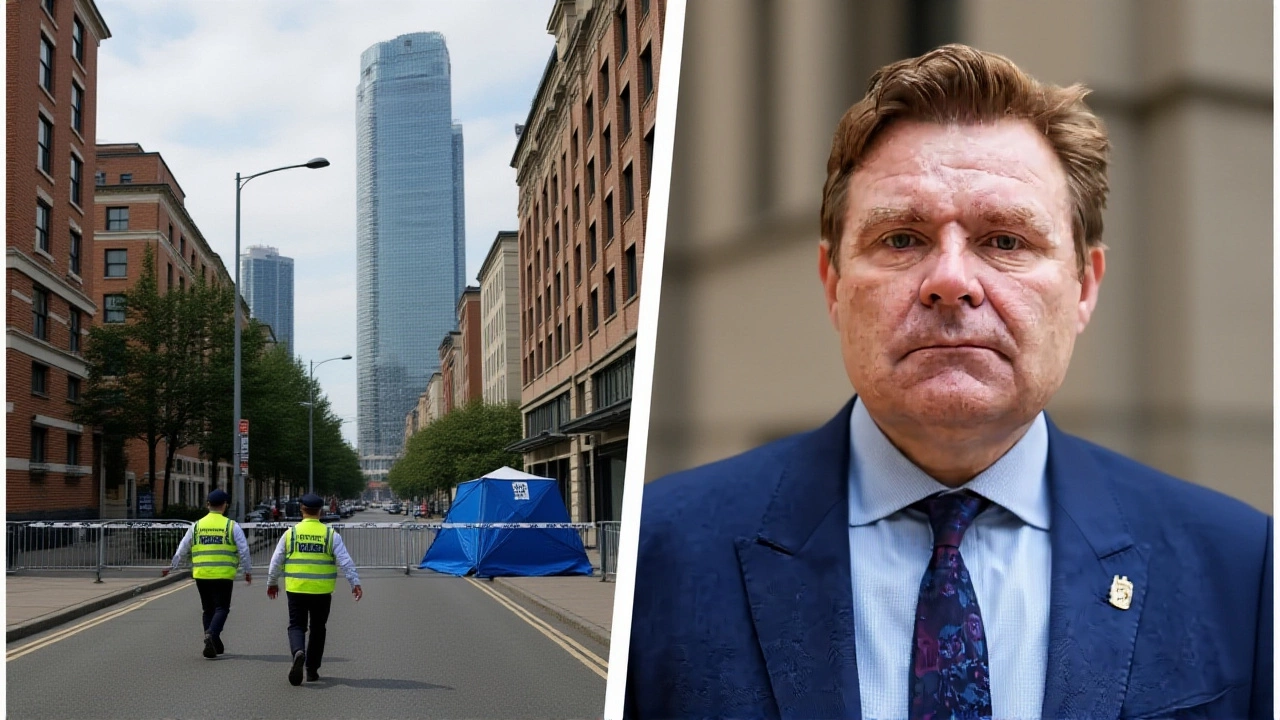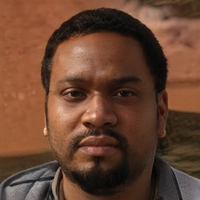When Councillor John Cotton, Leader of Birmingham City Council, spoke out last week, he didn’t just issue a statement—he issued a lifeline. In the wake of violent far-right mobilizations across the UK and a terrifying flare-up in parts of Birmingham on the night before his address, Cotton didn’t mince words: "This mob violence is wholly unacceptable." And with that, he didn’t just condemn hatred—he rallied a city. The timing was critical. Early November 2025 saw a spike in Islamophobic and racist attacks nationwide, from vandalism at mosques to threats against refugee centres. But in Birmingham, the tension turned physical. Last night, as residents returned home, a group of agitators targeted businesses and places of worship in the Sparkhill and Handsworth areas. No one was seriously injured, but the fear was real. That’s when Cotton stepped up. Here’s the thing: Birmingham isn’t just another city. With over 1.15 million people, it’s one of the UK’s most diverse urban centers—home to more than 150 languages and over 200 faith communities. For Cotton, this wasn’t a political statement. It was personal. "Here in Birmingham we are a proud city of sanctuary," he declared. "Diversity is our strength." And he meant it. The council’s response was swift and structured. Within hours, Birmingham City Council activated its cohesion and safety teams, reaching out directly to Birmingham mosques, including the Green Lane Masjid and Birmingham Central Mosque. They didn’t just send emails—they shared contact details for Home Office protective security support, ensuring faith leaders had direct access to resources. "We’re working with Birmingham mosques and have informed them of the additional support," Cotton said. Simple. Direct. Actionable. Over the weekend, the dialogue didn’t stop. Meetings with community leaders, imams, and youth organizers stretched into late nights. By Monday morning, West Midlands Police sat at the table too. "Meetings with faith groups, community leaders and West Midlands Police have continued today," Cotton confirmed. This isn’t just coordination—it’s coalition-building. And it’s working. Community safety officers, normally assigned to neighborhood patrols, are now on extra alert, specifically trained to identify and de-escalate emerging tensions. What’s often overlooked? The businesses. Small shops in Sparkhill, small tailors in Aston, corner stores in Nechells—all reported threats, broken windows, graffiti. "We are also working to ensure vulnerable businesses that have reported incidents are receiving the support they need," Cotton noted. That means emergency grants, security upgrades, even mental health referrals for owners shaken by the ordeal. And then there’s the refugee angle. Asylum centres in Selly Oak and King’s Norton, home to hundreds of displaced families, were placed under heightened protection. These aren’t just buildings—they’re homes for people fleeing war, persecution, poverty. Cotton made sure they weren’t forgotten. "Ongoing engagement will also link in key asylum and refugee centres," he said. That’s leadership that sees the whole picture. The broader context matters. This isn’t an isolated incident. Similar far-right violence flared in Manchester and Leeds just days earlier. But in Birmingham, the response stood out—not because it was bigger, but because it was *faster*. And because it was rooted in trust. The council didn’t wait for the police to lead. They didn’t wait for the Home Office to issue guidance. They acted. The twist? It’s not about policing. It’s about belonging. Cotton’s message wasn’t just about stopping violence—it was about reinforcing identity. "We need clear voices standing up for our communities," he said, correcting himself mid-sentence—"now more than ever we need clear voices." That slip? It felt human. Real. Like someone speaking from the heart, not a script. What happens next? The council has pledged ongoing work through the coming weeks. A public forum is planned for next Thursday. A multifaith peace walk is being organized. And yes, misinformation campaigns are being tracked—Facebook groups, Telegram channels, even local flyers—each one being reported and countered with facts. This is what local government looks like when it’s working. Not in Westminster halls. Not in press releases. But on street corners, in mosque halls, outside corner shops where a shopkeeper finally feels safe again. Birmingham didn’t just respond to hate. It doubled down on humanity.
How Birmingham’s Safety Network Operates
The coordination between Birmingham City Council, West Midlands Police, and community groups isn’t new—but it’s never been this visible. The council’s cohesion teams have been around since 2017, created after the 2016 terror attacks. But this November, they were activated with unprecedented speed. Each mosque received a dedicated liaison officer. Businesses reporting threats got a 24-hour hotline. Refugees were offered safe passage to local community centres. The Home Office’s protective security funding, which typically takes weeks to deploy, was fast-tracked within 48 hours. "It’s not just about security," said Amina Khan, a community organizer in Sparkhill. "It’s about saying: You’re not alone. We see you. We’re here."Why This Matters Beyond Birmingham
Cities across the UK are watching. In Leicester, council leaders are already modeling their response on Birmingham’s. In Bradford, a similar multifaith taskforce is being formed. This isn’t just local politics—it’s a blueprint. The Home Office has quietly acknowledged the model. A senior official, speaking off-record, called it "the most effective community-led response to far-right violence we’ve seen in years." And that’s the real story. It wasn’t a new law. It wasn’t a new police unit. It was trust. Communication. Presence.What’s Next for Birmingham?
The council has announced three concrete steps:- A public forum on community safety, open to all residents, scheduled for November 14, 2025, at the Birmingham Repertory Theatre.
- A citywide "Safety in Unity" campaign, featuring multilingual posters, radio spots, and social media content to counter misinformation.
- A formal partnership agreement between the council, West Midlands Police, and 12 major mosques to institutionalize monthly safety briefings.
Background: The Rise of Far-Right Activity in Early November 2025
The unrest didn’t come out of nowhere. In late October, a viral social media campaign falsely accused Muslim community centres of "funding extremist training." The claims were debunked by multiple fact-checkers, but the damage was done. Protests turned violent in Birmingham, Manchester, and Cardiff between November 3 and 5. Two mosques were firebombed. A refugee centre in Leeds had its windows smashed. The Home Office confirmed 17 hate crime incidents directly linked to far-right groups in the UK during that period. Birmingham accounted for four of them—none fatal, but all deeply traumatic. What set Birmingham apart? The speed of the response. While other cities debated who was responsible, Cotton’s team was already on the ground.Frequently Asked Questions
How does this affect Muslim communities in Birmingham?
Muslim residents in Birmingham have reported increased anxiety, especially around prayer times and school runs. But the council’s rapid outreach—including security support, direct liaison officers, and public affirmations of safety—has begun to ease fears. Over 90% of mosques contacted reported feeling more secure after the council’s intervention, according to internal surveys.
What role did West Midlands Police play in this response?
West Midlands Police didn’t lead—but they collaborated. Officers attended all council-led meetings with faith groups and provided real-time intelligence on suspected far-right mobilizations. They also deployed plainclothes officers near high-risk locations and shared contact protocols with community safety officers, creating a unified front without over-policing.
Why did the council focus on asylum centres?
Asylum seekers have been targeted in recent hate campaigns, falsely accused of "taking resources" or being linked to extremism. With over 1,200 refugees housed in Birmingham centres, the council recognized these communities as both vulnerable and essential to the city’s fabric. Enhanced security and daily check-ins have been implemented to prevent isolation and ensure access to support services.
What’s being done to stop online hate speech?
The council has partnered with digital safety NGOs to monitor 17 known far-right Facebook groups and Telegram channels active in Birmingham. They’ve reported 43 verified hate posts to Meta and Telegram, resulting in 11 account suspensions. A public education campaign is now running to teach residents how to identify and report misinformation.
Is this response unique, or have other UK cities done similar work?
Other cities have responded to hate crimes, but Birmingham’s speed, scale, and multi-agency coordination are unusual. Leicester and Nottingham have since adopted similar models, but Birmingham’s direct involvement of mosques, refugee centres, and small businesses—without waiting for national directives—makes it a standout example of local leadership.
What happens if more violence occurs?
The council has activated an emergency response protocol that includes immediate deployment of community safety officers, emergency meetings with police and faith leaders, and a public information hotline. They’ve also secured £2.3 million in emergency funding from the Home Office to bolster security infrastructure and community outreach programs through early 2026.

